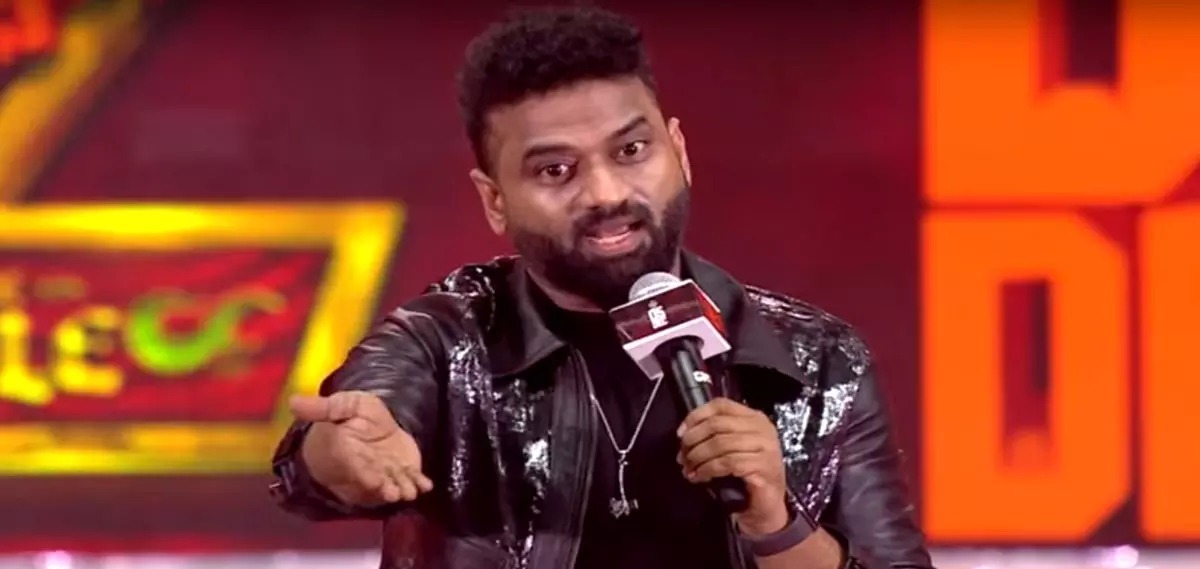- November 25, 2024
Devi Sri Prasad Responds to Pushpa Controversy, Calls for Fair Recognition Entertainment

Devi Sri Prasad, commonly known as DSP, is one of the most celebrated music composers in the Indian film industry. Known for his vibrant and energetic compositions, he has created several hit songs in multiple languages, including Telugu, Tamil, and Hindi. One of his most prominent works in recent years has been for the blockbuster film Pushpa: The Rise, directed by Sukumar and starring Allu Arjun. The film was a massive success, not just in the Telugu-speaking regions but across India, and its music, composed by DSP, played a crucial role in enhancing its appeal. The songs of Pushpa became chartbusters, with tracks like “Srivalli” and “Oo Antava” receiving significant attention. However, despite the film’s enormous success, the project has also been the subject of some controversies, particularly regarding the recognition of those involved in its creation. Devi Sri Prasad, in particular, has been vocal about some of the challenges he faced in terms of fair acknowledgment for his contributions to Pushpa, especially in the context of national and international recognition. In interviews and public statements, DSP has made it clear that he believes the efforts of many artists and technicians, including himself, deserve fair recognition and respect, particularly when it comes to awards and accolades in the industry. The controversy surrounding Pushpa began with discussions over the role of the music in the film’s success. While the film’s storyline, acting, and direction received widespread praise, there was significant attention on how the music and background score had contributed to its overall impact. Devi Sri Prasad’s score for Pushpa played a central role in shaping the film’s tone and energy, with the songs becoming anthems and contributing to the film’s massive popularity. However, despite the overwhelming success of the soundtrack, some critics and fans felt that Devi Sri Prasad did not receive the recognition he deserved for his work, particularly in major film award ceremonies. In his responses, Devi Sri Prasad has expressed his frustration over what he perceived as a lack of proper acknowledgment for his hard work. As a composer who has consistently produced chart-topping music, DSP’s contributions to films have often been a defining factor in their success. In the case of Pushpa, his music was undoubtedly one of the standout elements of the film, with tracks like “Srivalli” becoming hugely popular. Yet, DSP noted that in the rush to focus on the more visible aspects of filmmaking, such as the performances of the lead actors and the direction, the contributions of composers and musicians sometimes go unnoticed. This, he believes, is an unfortunate trend in the industry that needs to change. One of the key points Devi Sri Prasad raised was the need for a more fair and transparent process in the way music is recognized within the Indian film industry. He expressed his belief that composers and musicians should be given their due credit for the role they play in the success of a film. The lack of recognition for his work on Pushpa highlighted a larger issue within the industry—how creative contributions beyond the obvious visual elements are often sidelined. DSP has been vocal about the fact that music is an integral part of a film’s success, and it deserves equal appreciation alongside other elements such as acting and direction. This desire for fair recognition is not limited to his work on Pushpa. Devi Sri Prasad’s career has been filled with numerous successful soundtracks across different languages, yet he has often felt that composers are not given the same level of respect or acknowledgment as actors or directors in mainstream discussions and award ceremonies. The Pushpa controversy, then, is part of a broader conversation about how the film industry can improve its approach to recognizing the contributions of various departments, including music.
The post Devi Sri Prasad Responds to Pushpa Controversy, Calls for Fair Recognition Entertainment first appeared on InfluencersPro.



